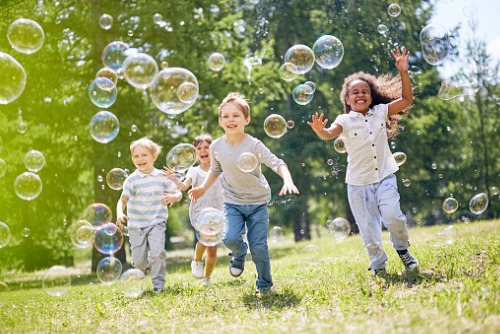
When improving student outcomes is the topic of conversation, leveraging technology and getting parents more involved in their children’s schooling are often the first solutions that come to mind.
However, amid the push to produce assessment-ready students and good results in NAPLAN and the ATAR, educators often forget to develop the human aspect of their students.
Why play matters
A growing body of research shows that learning does not have to be limited to the four walls of the classroom.
In an article published in The Conversation, Professor Tonia Gray from Western Sydney University’s Centre for Educational Research wrote that having children exposed to outdoor play can help not only work off excess energy, but also help improve their concentration – and ultimately their test scores.
Schools like Glenaeon Rudolf Steiner School have been implementing outdoor learning to improve students’ social and emotional wellbeing.
In August, some 80% of WA teachers participating in a survey said they would want more play-based learning in early childhood classrooms to improve the cognitive, emotional and social development of primary school students.
But others say letting young students play among fellow students shouldn’t be the only option.
The University of Wollongong recently hosted an Intergenerational Playgroup – which lets young children and older people connect through playing – at the Early Start’s Playful learning Space.
UOW’s research found that children develop higher levels of language and problem-solving skills when they are exposed to intergenerational play.
The University of Canberra also took part in promoting the importance of play for young students.
Around 30 of the University’s Early Childhood Education students recently ran a ‘pop-up playground’ without the use of expensive equipment for children aged 4-8 as part of their course work.
“[University] students hadn’t really appreciated loose parts play, before creating the pop-up playground, they thought it was just junk,” Dr Kym Simoncini, an associate professor of Early Childhood and Primary Education, said.
“But after facilitating the playground, students realised that the children were using problem-solving skills, were working with others and using language, creativity and imagination.”
Government-approved
The use of play can also make it easier to provide extracurricular lessons to children.
Federal Education Minister Dan Tehan recently announced that the government’s play-based language instruction program can now be used in preschools to give Australian children more opportunities to learn a foreign language.
The digital-based Early Learning Languages Program has reached 110,000 children across more than 3,500 preschools. The program offers 13 languages – from Arabic to Vietnamese.
“The program helps grow students’ social, thinking, digital and literacy skills, and can also improve memory and concentration,” Minister Tehan said.
“Educators don’t need any language training to use it, the program provides extensive support material, offline games, learning resources, and a responsive helpdesk.”
Amid its drive to become the education state, the Victorian Government recently released $129,000 to fund landscaping works at Carnegie Primary School. This is in addition to the $5.5m facilities upgrade the school benefited from.
The landscaping work will include play equipment and a designated area for sand play aside from concrete paving and setting garden beds.
“We are proud to invest in Carnegie Primary School and it is exciting to see the benefits these upgrades will bring to the students, staff and the whole local Carnegie community,” Victoria’s Education Minister James Merlino said.


